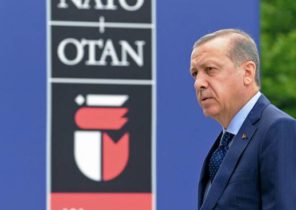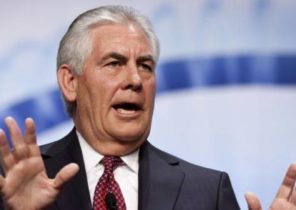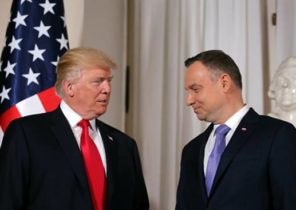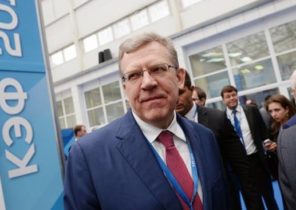Over the past few months, Russia has turned into a weapon delivery its oil at a discount and used them in order to force Belarus to agree with the level of economic and political integration, which, in essence, would guarantee her loyalty. However, this strategy only strengthened the desire of Minsk to diversify its oil imports. However, Belarus continues to be based on because of close trade ties with Russia, and the export of natural gas provides Moscow the preservation of another means of pressure which it can apply against its smaller neighbor in future negotiations.
Despite the recent resumption of Russian oil supplies, Belarus continues to strive towards diversification of crude oil imports, and this will allow it to achieve more favorable terms in the contract about possible integration with Moscow. January 1, Russia began to reduce the supply of crude oil to Belarus, as both sides are unable to reach agreement on price. When oil supplies through the pipeline “Druzhba” was completely dried up, Belarus turned to alternative sources, including Norway and Azerbaijan, in order to partially replace the suspended Moscow delivery. Purchases from alternative sources has allowed Belarus to ensure the operation of its refineries in the first quarter of 2020, however, they were forced to work only half of its capacity.
The tankers delivered more than 2 million barrels of oil from Norway to the Lithuanian port of Klaipeda, and from there the oil was sent by rail to the Belarusian refineries.
4 million barrels of oil from Azerbaijan and from other sources that uses state of Azerbaijan SOCAR, the giant were first taken to the Ukrainian city of Odessa, and then pumped by pipeline to Belarus.
A small number of Russian manufacturers with close ties with Belarus will also continue to supply a limited amount of crude oil Russian export award.
In may, Belarus has received the first batch of oil from Saudi Arabia through the Lithuanian port of Klaipeda.
Strong commitment to diversify
In April, Russia resumed oil supplies to Belarus after the two sides reached a new agreement on prices, but Minsk nevertheless continues to diversify its relations in the field of oil. In accordance with the enclosed pricing deal, Russia agreed to abandon the award for the supply of crude oil and gave Minsk the largest in the history of the discount, the final price was $ 4 per barrel. In addition, Moscow has offered Belarus to compensate for the loss of income due to the change of the value of Russian export duties.
Despite attempts to sweeten the pill, Belarus decisively configured to carry out the plan of Alexander Lukashenko, according to which Minsk must obtain at least 60% of its oil from other countries, not from Russia. For that Minsk planned to import only 8 million barrels of Russian crude oil, while in April the volume of purchases amounted to 11 million barrels. Lukashenka has also recently given instructions to the government to build a storage infrastructure for strategic reserves of oil, which will help the country to cope with future disruptions in Russian oil supplies.
However, further reducing the dependence of Belarus from the Russian oil supplies will require significant infrastructure development. So, for example, as part of its broader strategy of diversifying Minsk has repeatedly discussed plans for the import of oil coming from Poland pipeline. Currently, however, the connecting Belarus and Poland the Russian pipelines to transport oil back to Europe, so a temporary change in the direction of pumping will force Poland to conduct appropriate technical work. Belarus ready for such an option and set tariffs for the supply of oil on this route, and Poland, according to reports, began collecting requests for the required upgrades, however, these two countries have yet to conclude an official agreement regarding this project.
The ongoing search Belarus, new energy partners will allow it to achieve more favorable terms at the conclusion of a future agreement on integration with Russia.
The United States has stated its support for the strategy of Belarus, aimed at the diversification of procurement of crude oil, believing that as a result reduced associated with the oil supplies of Russian influence in Europe. However, the promises of Washington to provide financial support for the construction of regional pipelines from Lithuania and from Poland, as well as to begin to carry out direct deliveries of us oil has not yet materialized.
The weakening of the Russian pressure
Diversification of oil supplies allowed Minsk to refrain from adopting Russian conditions on the wider integration plan. Russia wanted to exploit the negotiation of the price of oil and hoped to subject the provision of critical discounts from the integration agreement, which includes the creation of several supranational bodies to oversee monetary policy, energy markets and customs. As for Belarus, Moscow’s level of integration means for her too great a surrender of sovereignty. Clearly demonstrating their ability to get oil from other sources, Minsk, in fact, eliminated this leverage and have more room for maneuver in future negotiations about integration.
Despite the counter-efforts of Russia aimed at putting pressure with oil supplies, Belarus continues to be vulnerable in economic terms for supplies of Russian natural gas and other products. Russia today accounts for almost half of the total trade of Belarus, including 40% of exports and 50% imports. In contrast, in Belarus accounts for only 6% of Russian trade turnover. Such disparity makes Belarus vulnerable to the fluctuations of the Russian economy and made it difficult for her to achieve economic growth. Too much dependence on Russia is an important reason that Belarus has not only remained open to economic ties with Russia, but, in fact, wants to deepen them, but so that it does not interfere with others her trade relations.
Thus, determination of Minsk, as well as its ability to turn to alternative trading partners shows that it will agree to further integration with Russia only on mutually agreeable terms. The expansion of trade relations with the West in General and with the European Union in particular remains a key priority for Minsk. To do this, Belarus will need to act prudently to avoid the impression of too close relations with Moscow as a promising and promising relationships can suffer, and Belarus will become the object of Western sanctions. Minsk will be open to pragmatic integration, which will allow you to maximize useful trade with Russia, but not the cost of giving up economic autonomy to which it aspires.







